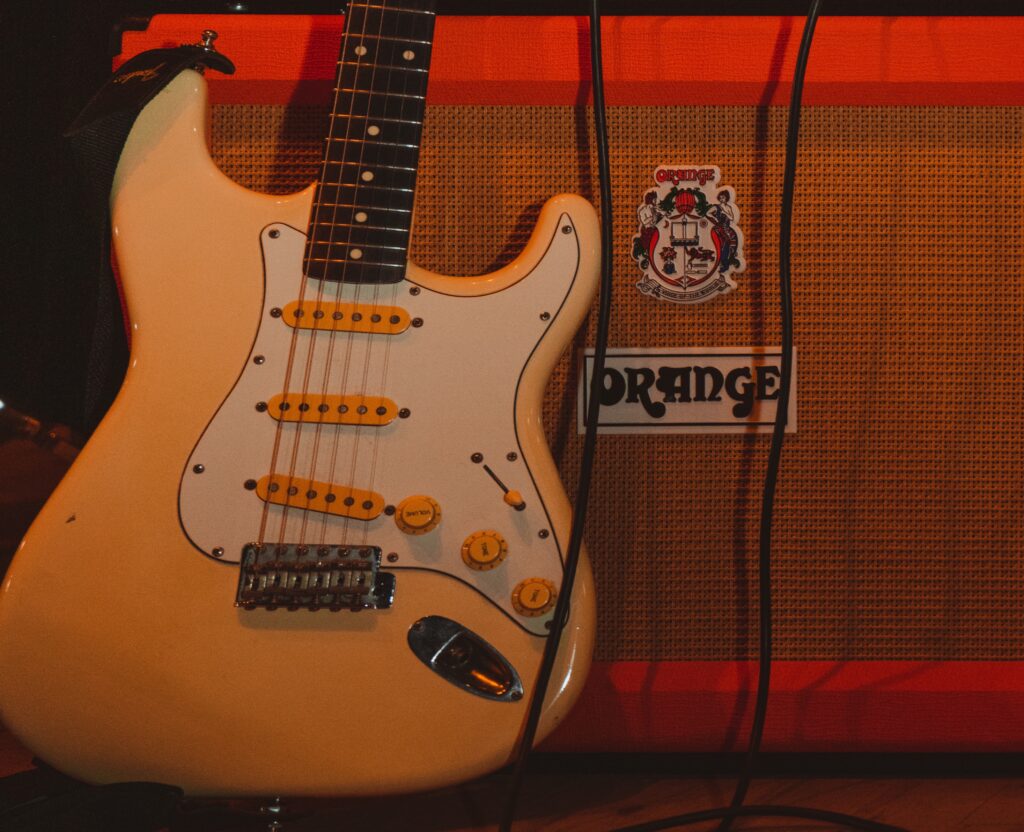What’s the Difference Between Active and Passive Pickups?
The pickup on your electric guitar or bass affects the tone. Whether you have a passive or active pickup, each type will give a different sound to your music. Below, we’ll explain what exactly the pickup is, the difference between passive and active pickups, and which type you should use.
What is a Pickup?
The pickup is the piece of metal or plastic that sits below the strings on the body of your guitar or bass. It “picks up” the vibrations coming from the strings and translates those vibrations to the sound you hear coming out of your amp.The pickup is made of a magnet and wound copper wire. When you strum the strings of the guitar or bass, it disrupts the magnet and alters the current that is running through the copper wire. That current then moves through the amplifier, giving you your sound.
Active vs Passive
There are several differences between the two types of pickups.Passive pickups are how we described them above. They have two basic components — the magnet and would copper wire — which pick up the vibrations of the strings. The vibrations are read as a current, which then travels through your cable and then out of your amplifier.Passive pickups create a weaker electric signal than active pickups, making your amplifier more important. The amp is where your sound is boosted, giving it much better projection.Active pickups have a higher output than passive pickups because they rely on a power source, like a battery. Basically, active pickups will give your sound more power and give you a more consistent tone than a passive pickup.
Which is Better?
Objectively, neither type of pickup is better than the other. Each type of pickup comes with its own set of advantages and disadvantages. The advantages of a passive pickup include:
- Making your tone more expressive because the pickup is more sensitive to the vibrations of the strings
- Ability to pick up more subtle tones, giving your music a greater range
- More affordable than guitars and basses with active pickups
Some disadvantages of passive pickups are:
- They have a more limited output
- If you have a slightly lower-quality guitar, it could have more of an effect on your sound than an active pickup
- Produce a lot more feedback out of the amplifier, which can interfere with the sound and tone of your guitar or bass
If you’re a beginner, you may not want to spend the extra money needed to get an active pickup. However, you can upgrade your passive pickup to an active pickup. If you like playing around with the subtleties of your music, the passive pickup would also be the better choice.The quality of your amp is also important in getting the most out of your passive pickup, since this type relies more heavily on this piece of equipment.The advantages of an active pickup include:
- Have less feedback than passive pickups, giving your music a cleaner sound
- Easier to handle with high-gain distortions
- Better tone than passive pickups with a lower-quality guitar or bass
Some of the disadvantages of the active pickup are:
- Guitars with active pickups are more expensive than guitars with passive pickups
- If your battery runs out, the instrument is basically useless until you replace the battery
Active pickups are more popular with bass players and guitarists who mainly play metal. For bassists, the active pickup gives the instrument a brighter tone that fits better with the style of their playing. The power you get with an active pickup is better suited to the energy of the metal genre of music.With their cleaner tones, active pickups are also better suited for studio recording. If you used a passive pickup instead, you’d have a lot more excess noise to work through while mixing the track.The type of pickup you choose will come down to the genre of music you typically play in, your playing style and your own preference. Test out both types of pickups, decide on the type you think sounds best, and then just go with that one.
